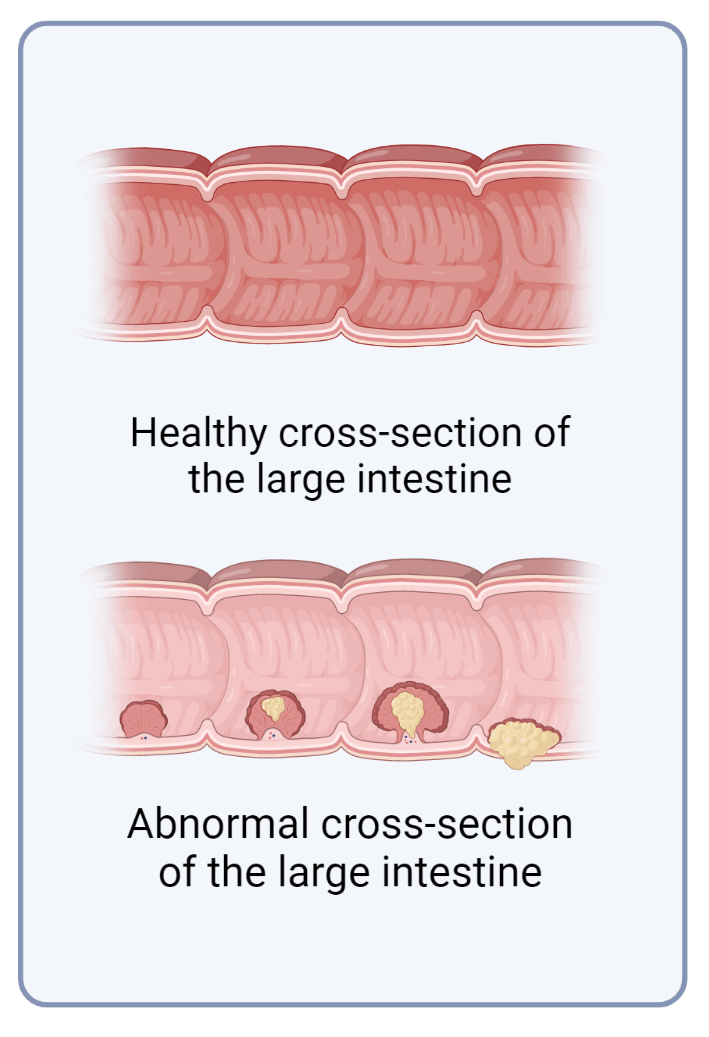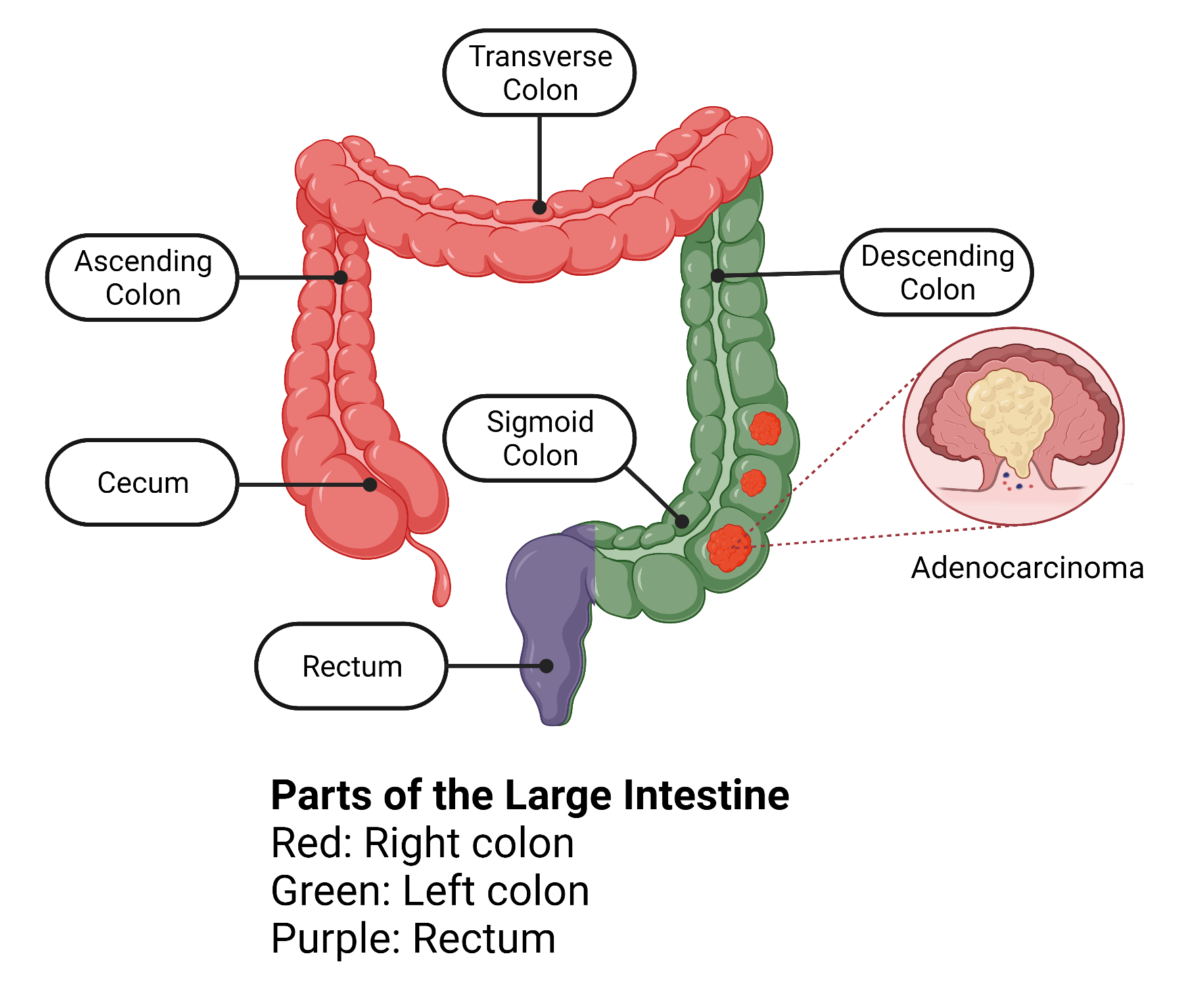A non-invasive test for CRC screening is the Fecal Immunochemical Test, or FIT. For this test, a stool sample is collected by inserting a plastic stick into several locations of the stool and attaching the stick to a small tube with preserving liquid. The liquid is then tested for hemoglobin in the lab. If positive, a colonoscopy is typically recommended to determine if an adenoma or cancerous lesion is present.
Biobanks are libraries of biological samples that are stored long-term and can be used for later study. They are integral research tools that often include the following sample types when built for cancer research:
With biobanks, researchers are provided access to a range of sample types from across the patient’s continuum from diagnosis to post-treatment, precluding the need for individual investigators to secure funding to collect samples over time.
Accordingly, our lab is currently building a biobank using leftover FIT samples, routinely collected in clinics, which preserve the gut microbiome when stored at room temperature for upwards of weeks, from federally qualified health centers serving underrepresented patients.
Currently, few prospective studies of the microbiome have been completed, making it difficult to determine if the microbiome precedes colorectal cancer development or vice versa. Therefore, our biobank will make strides towards addressing this gap by establishing the sequence of events on the path to colorectal cancer.
Further, many microbiome studies do not include a comprehensive assessment of potential confounders/other factors of interest, such as diet and other lifestyle factors. Our biobank, on the other hand, will collect detailed data from a subset of participants that can be used to control for the effects of confounding in our analyses, giving us more confidence that it is the microbiome and not an underlying factor explaining the appearance of colorectal adenomas and cancer. The following questionnaires will be provided to participants to collect detailed data:

Created with BioRender.com

Created with BioRender.com

Created with BioRender.com